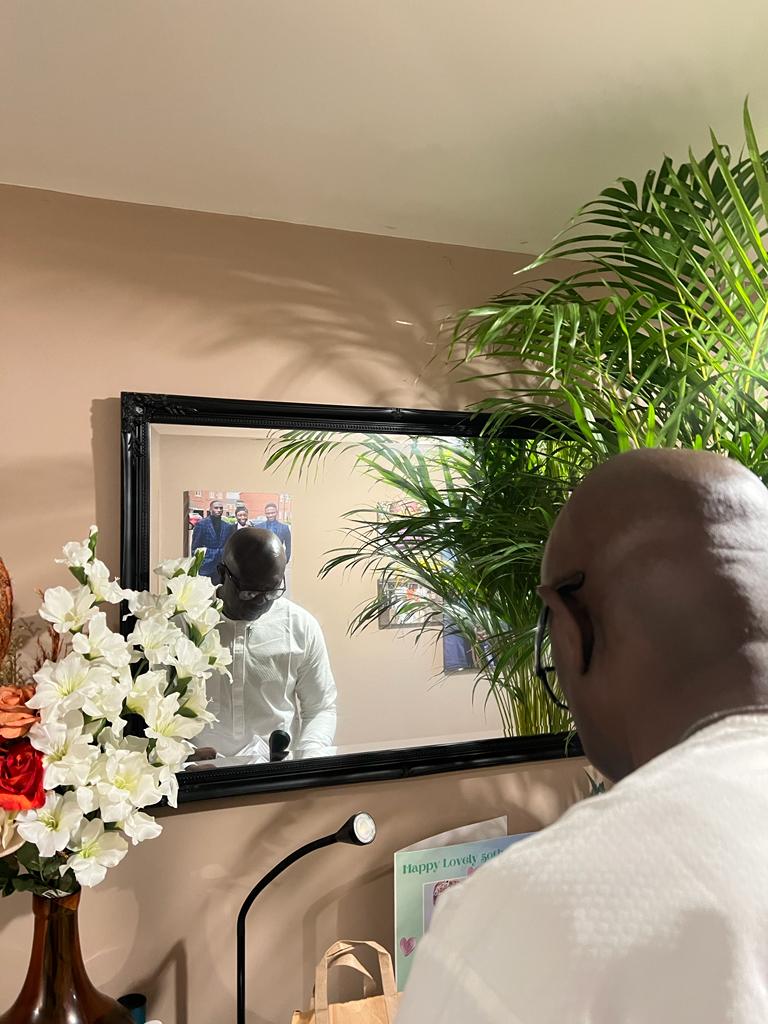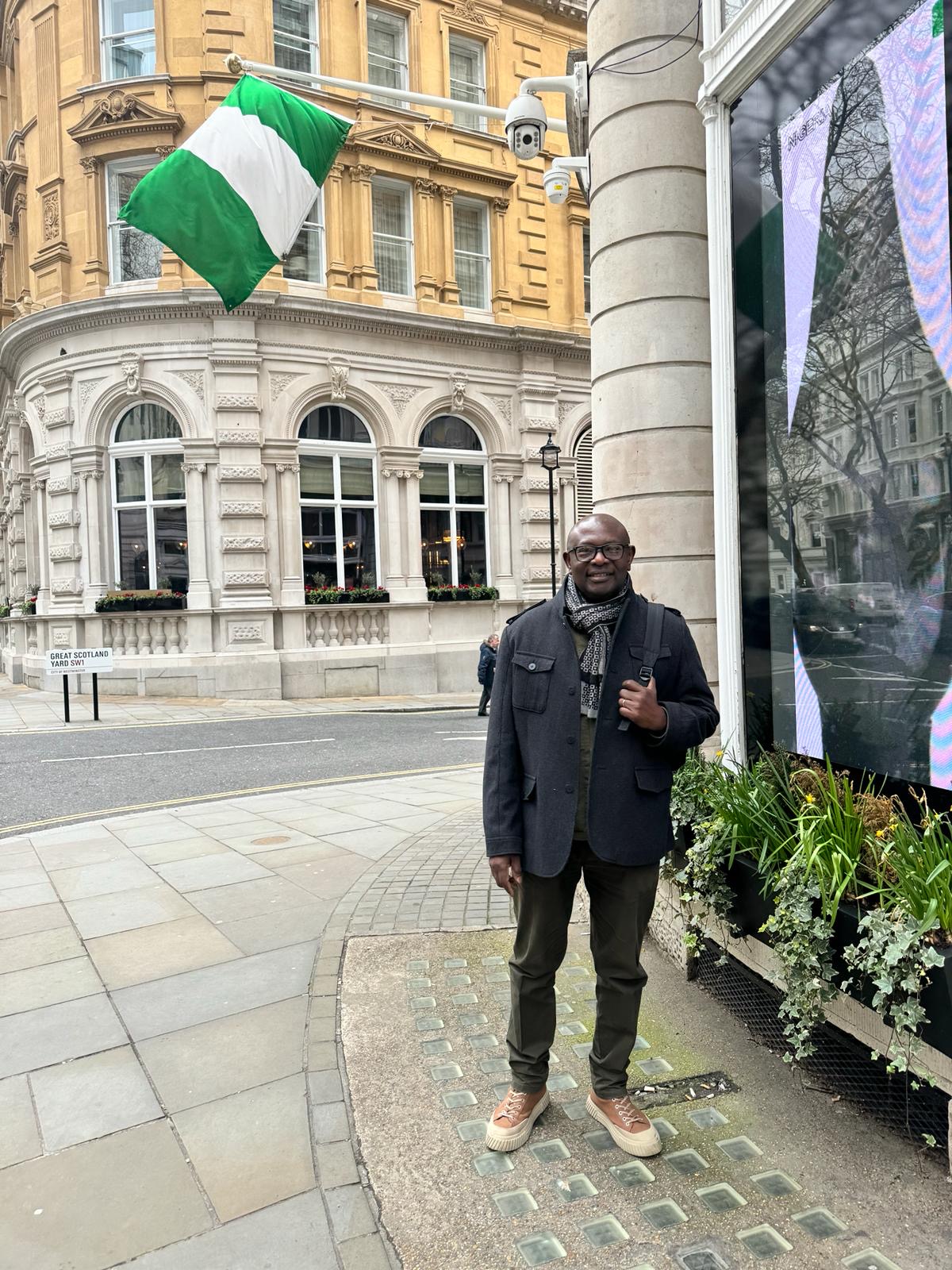By Morak Babajide-Alabi
One of the gains of this season of lockdown is our ability to define the various types of people that inhabit this world. I noticed of late that we explain our friendship and relationship based on inferential rationalising. Being unable to relate physically, we now tend to evaluate the intelligence of our friends, colleagues and leaders by what or who they associate with or how they react to events.
Because we have so much time on our hands nowadays, some of us exercise the inert ability to reason beyond the surface. This is accentuated by the surrounding peace which is occasioned by lack of noise, distractions and “what’s not” that we have always been conditioned to. We do not have to strain our brains before the penny drops, and we identify the solution to whatever we are searching for. I do not have an explanation for this, however, sometime in the future when the lockdown is over I am sure scientists and researchers will carry out a study on our behaviour during this period. The result would uncover some unusual patterns of reasoning that would inspire more studies for generations to follow.
There are individual, corporate and leadership behaviours that will be indefensible when the history of this period is chronicled in the future. A few years away from now, some of us will be ashamed of what we did or did not do before and during the lockdown. Most of us will shake our heads in disbelief when we read the thoughts of individuals that we believed in as leaders. When we read over historians records of utterances of some of these leaders, we will question our mental inability to vomit some of the warped thoughts forced down our throats.
Imagine in the future your grandchild calls out — “Grandpa, can I ask you a question?” Your reply would be, “Absolutely, what is it you want to know?” He continues, “The History teacher said Donald Trump the President of the United States of America during the Coronavirus pandemic, advised people to inject themselves with disinfectant.” At this time, the smile will be wiped off your face as you attempt to explain the rationale behind Trump’s claim at this time. You scramble your brain, but no plausible reason is coming forth. You mumble to yourself, “But how do I know what Trump was thinking, son?”
You are confused about what to tell your inquisitive grandchild who believed you are an embodiment of “sensibility.” “Did you believe him?” he asks before you could barely gather your thoughts together. You realise that he is not particularly looking for an answer. He is just curious about the intelligence capabilities of the leaders of your generation. “He was being sarcastic,” you practically said out to the kid, but instead suppressed the words.
“Grandpa, can I refer to a quote from United Kingdom’s Prime Minister Boris Johnson during this same Coronavirus pandemic?” Your heart would sink because you recognize the numerous mistakes Boris made during the period. “Go ahead,” you would say. He lifts his school work and read, “I was at a hospital the other night where I think there were actually a few coronavirus patients and I shook hands with everybody, you’ll be pleased to know, and I continue to shake hands.” Do you smile and say “yes, Johnson was stupid, and he almost paid with his life for this?” Do you go further to say “he contracted the fatal virus a few weeks after?”
He is not contented yet. “What about the story of the guy that died of COVID-19 and your people in Nigeria were falling over themselves to be at his funeral?” Would you lie to the kid, change history or tell him the truth? At this point, you will cast your mind back to the era, shake your head, hold the hand of your grandchild and educate him. Proudly you would say that Nigeria was at the time a lawless country. “There were customarily two sets of laws in the country. One for the poor and the other for the rich.” It does not matter if he understands or not, at least you have answered him.
At that time you genuinely wished the conversation was over, as he may bring up more ludicrous stories of your era. To counter him, you start preparing answers to questions he may ask you. What about the British-Kenyan Pastor who claimed his “plague protection kits” could shield people from Coronavirus? Yes, Bishop Climate Wiseman of the Kingdom Church, London sold these kits for tidy sums of money. We do not know how many of his members purchased this, but the UK Charity Commission got interested in his story. It said, “We are looking into the serious concern about Kingdom Church GB’s alleged sale of false Covid-19 protection devices, as a matter of urgency.”
The pastor is just one of the many that conned people during the pandemic. Some religious leaders claimed they had divine powers to cleanse individuals or deliver them from the grip of the virus. Standing on the pulpit to make fraudulent claims will surprise any reasonable individual. But in this age, when religion is the opium of the people and all we chase are miracles and not salvation, as many are falling for the claims. These con artists come in different specialities, such as tax matters, PayPal, bank overdrafts, ability to speak directly with God, etc. They mutate as quickly as they could scam people out of their hard-earned earnings.
During this lockdown, so many unscrupulous individuals and businesses have taken advantage of the situation to make extra bucks. You remember when toilet paper became the new gold and item of choice in the black market. Not a few corner shop owners sold at the recommended retail price as they saw the depressing global situations as an opportunity to amass wealth. It was reported that the online trading giant, Amazon, shut down some businesses that took advantage of the situation to defraud people.
When we look back, we will examine the role of social media. Well, maybe it will be more of checking how we operated the platform in the dissemination of questionable information. We will check up on our friends that fell for the scams on the platforms. Hopefully, they will be sincere to tell us how many toilet paper they bought at premium costs or if they bought the Bishop/Prophet/Imam’s Coronavirus protection kit. We recognize the ones that voraciously and unabashedly shared fake news on Whats App. They kept us entertained while it lasted, with all the unbelievable 5G and Coronavirus intertwined stories.
Despite the antics of these friends on social media, historians will not undercut its importance during the lockdown. Undoubtedly, it assisted in reaching many people who ordinarily do not listen or follow the news. Social media has become an effective method to communicate with the public, by jumping into our private confines without in fact appearing so. Most of the COVID-19 awareness campaigns by governments are strategically run on social media.
Although we are daily besieged with these advertisements, we do not complain as they come as educational materials to us. But a more diligent study in the future will reveal that the tactical strategy to scare us off the streets in messages disguised as hygiene lessons worked in combating the Coronavirus. Besides, the lockdown also brought out the creative part of us as we take to social media to share our stories and interact with the world.
Where are the critics of social media?
As written for the Diaspora Matters Column, Sunday Vanguard, May 3, 2020.







